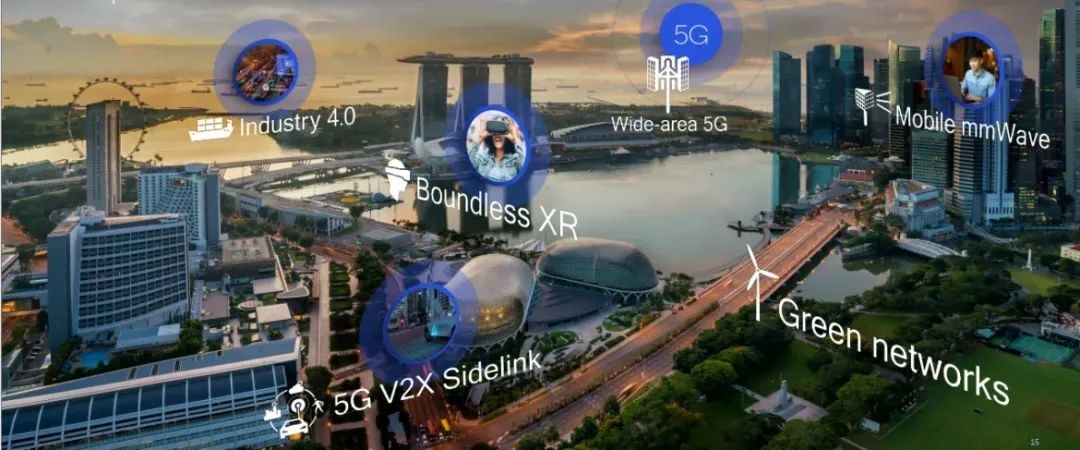5G Advanced will continue to lead us towards the future of the digital age. As an in-depth evolution of 5G technology, 5G Advanced not only represents a major leap in the field of communications, but is also a pioneer of the digital era. Its development status is undoubtedly a wind vane for our progress, while also reflecting the infinite charm of cutting-edge science and technology.
The development status of 5G Advanced presents an encouraging picture. Globally, operators and technology companies are actively deploying 5G Advanced networks to meet the growing demand for connectivity. This development has triggered a wave of digital revolution, allowing us to experience unprecedented communication capabilities. 5G Advanced not only inherits the basic features of 5G such as high speed, low latency and large capacity, but also introduces more innovations. It provides higher quality communication services and solid foundation for various emerging applications. The push of this technology will go beyond mobile communications, impacting smart cities, industrial automation, healthcare and more.
However, the road ahead for 5G Advanced is not without challenges. These include infrastructure upgrades, spectrum management, security and privacy issues, etc. Yet it is these very challenges that motivate us, driving continuous innovation to ensure smooth development of 5G Advanced. In subsequent articles, we will take a deeper look into the development status of 5G Advanced, explore the challenges it faces, and analyze the future opportunities it brings. 5G Advanced has already changed our means of communication, and it will continue to shape our digital lives in the future. This progress is an area worth paying attention to and investing in, and we have a responsibility to actively participate and promote technological advances to lead the future of the digital age.
01. Infrastructure Upgrades
The successful application of 5G Advanced requires massive infrastructure upgrades to support faster, more reliable and higher bandwidth communications, including new base station constructions, expanded small cell coverage, and high-density fiber optic network deployment. This process necessitates substantial capital while also facing potential geographic and environmental constraints.
Verizon in the US has begun infrastructure upgrades for 5G Advanced, deploying 5G Ultra Wideband networks in some cities, delivering ultrafast speeds and low latency that enhances user experience while creating more opportunities for IoT applications and autonomous vehicles. However, this is no easy feat, needing to overcome challenges like construction difficulties, financing issues, city planning coordination and more. The complexity of infrastructure upgrades also involves introducing new technologies, ensuring sustainable energy supply, and coordinating urban development plans.
02. Spectrum Management
Spectrum management is another crucial challenge for 5G Advanced development. Effectively managing allocation across different bands to avoid interference and boost network performance is key to ensuring successful 5G Advanced operations. In addition, spectrum contention could lead to intense competition, requiring proper coordination mechanisms.
For instance, Ofcom in the UK is a successful spectrum management practitioner, having recently conducted spectrum auctions to assign more 5G bands to facilitate 5G Advanced progress. This move will encourage operators to expand 5G network coverage and improve accessibility. However, spectrum management still entails complex negotiations and planning between governments, industry associations and companies to ensure efficient utilization of spectrum resources. The intricacies of spectrum management also include coordinating bands, auction competition and feasibility of spectrum sharing.
03. Security and Privacy
The extensive 5G Advanced application will introduce far more devices and data transfers, making networks more vulnerable to malicious attacks. Thus network security becomes paramount. Meanwhile privacy issues need to be adequately addressed to safeguard user personal information.
Huawei is a major 5G Advanced network equipment provider, but some countries have expressed security concerns. Hence close cooperation between governments and telecoms to ensure equipment safety is an important practice. However, network security remains an evolving arena requiring sustained R&D and resource investment to shield networks from threats. The complexity of network security also includes monitoring network vulnerabilities, sharing threat intelligence, and formulating security policies.
04. Laws and Regulations
The transnational nature of 5G Advanced means contending with legal and regulatory challenges across different countries and jurisdictions. Coordinating various rules and standards is complex but critical for enabling global interconnection.
In a concrete case, the European Union instituted the 5G Cybersecurity Toolbox to align member states’ 5G network security. This toolbox aims to establish shared regulatory benchmarks to safeguard 5G networks. However, disparities between legal systems and cultural differences across countries and regions persists as a challenge, necessitating coordination and collaboration to resolve. The intricacies of laws and regulations also include standardizing government oversight, formulating international contracts, and protecting intellectual property rights.
05. Public Concerns
Amidst 5G Advanced development, some members of the public have expressed health risk worries over potential radiation, although the scientific community largely affirms 5G emissions are safe. Such apprehensions could lead to restricting or postponing 5G base station constructions, while also spurring more scientific research and public education to address these concerns.
In the United States, some cities and states have already implemented regulations to constrain or delay 5G base station builds partly due to public concern. This prompts the scientific community to conduct more active research and furnish the public with more accurate information regarding 5G radiation. However, public concern still necessitates ongoing communication and education to build trust and resolve issues. The complexity of public concern also includes the influence of media messaging, uncertainties in health studies, and dialogues between governments and the public.
While diverse and complex, the challenges accompanying 5G Advanced also give rise to tremendous opportunities. By conquering these obstacles, we can facilitate successful 5G Advanced adoption to transform our means of communication, create more business opportunities, enhance quality of life, and progress society. 5G Advanced has already changed how we communicate, and it will continue leading us to the future of the digital era, opening new doors for future communications, the Internet of Things, and innovative applications.
Concept Microwave is a professional manufacturer of the 5G RF components in China , including the RF lowpass filter , highpass filter , bandpass filter , notch filter/band stop filter , duplexer,Power divider and directional coupler . All of them can be customized according to your requrements .
Welcome to our web : www.concet-mw.com or mail us at: sales@concept-mw.com
Post time: Dec-13-2023


